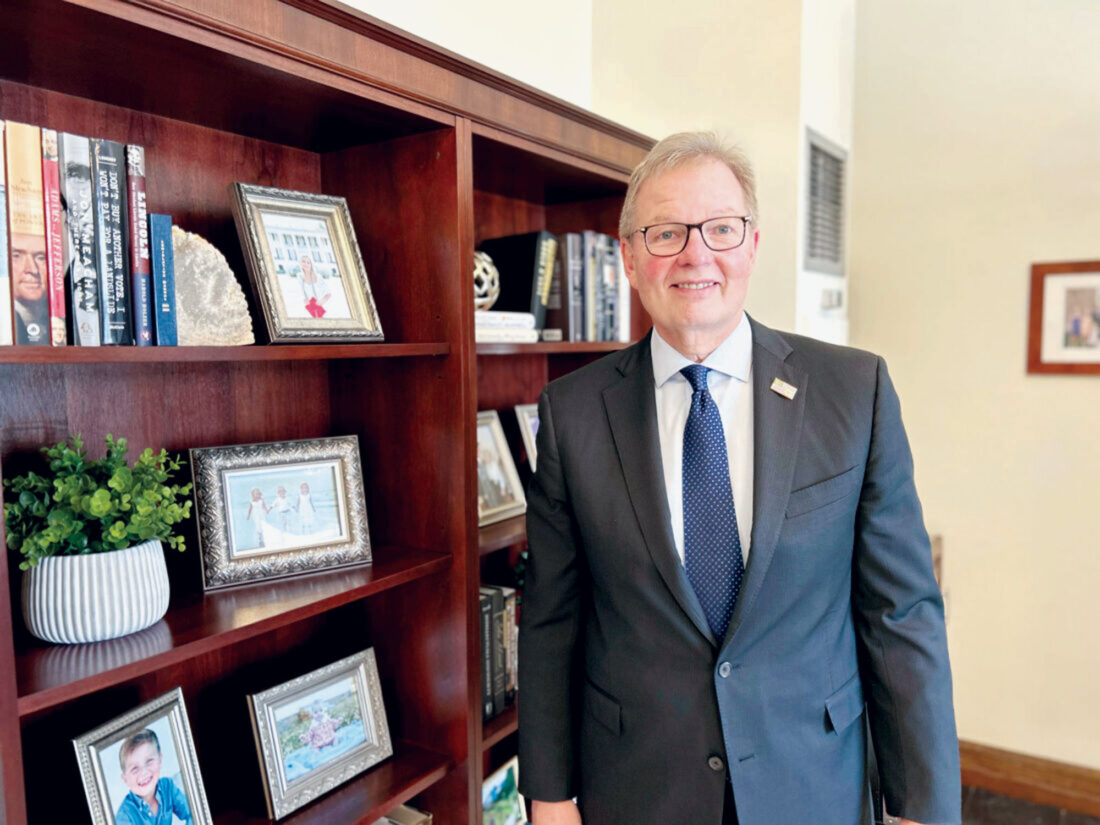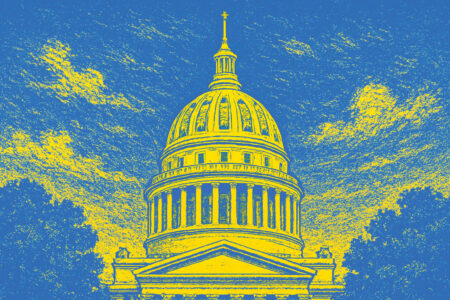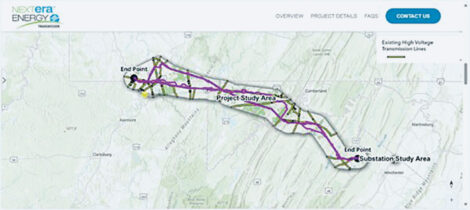West Virginia State Treasurer seeks special session to eliminate taxes on tips, overtime for three years

File Photo West Virginia Treasurer Larry Pack asked Gov. Patrick Morrisey to call lawmakers into special session before the year ends to pass a bill putting a three-year pause on taxing tips and overtime.
CHARLESTON — The state’s chief financial officer is asking Gov. Patrick Morrisey to call a special session before the end of the year to follow President Donald Trump’s lead and temporarily eliminate income taxes on tips and overtime. In a press release Tuesday morning, State Treasurer Larry Pack said a special session would be necessary for the West Virginia Legislature to pass a bill to eliminate personal income tax collections on tips and overtime retroactive to Jan. 1. “As we see states around us continue to lower their tax obligation on taxpayers, we must do everything in our power to stay competitive,” Pack said. “Eliminating tips and overtime from the state income tax will provide relief to hard-working West Virginians.” Earlier this summer, Congress passed Trump’s One Big Beautiful Bill Act, now called the Working Families Tax Cuts Act. As part of that package, the bill allows workers to deduct up to $25,000 in tips annually, while those who receive qualified overtime compensation can deduct the pay that exceeds their regular rate of pay – the “half” in time-and-a-half – up to $12,500 per individual or $25,000 for joint filers annually. Self-employed workers can only deduct no more than their net income from a trade or business where the tips were earned. The deduction for both the tips and overtime phases out for taxpayers with modified adjusted gross income over $150,000, or $300,000 for joint filers. The federal tax cuts are retroactive to Jan. 1 but end in tax year 2028. If West Virginia mirrors the federal law, ending income taxes on tips and overtime could return approximately $25 million to taxpayers, or $75 million over the three-year period. Other estimates place the annual cost to the state closer to $75 million in year one of the three-year plan. Trump made eliminating income taxes on tips and overtime a part of his 2024 re-election platform. “President Trump promised to abolish the tax on overtime pay and tips, a centerpiece for his tax policies,” Pack said. “The goal was to help blue-collar and service industry workers who often rely on overtime and tips to make ends meet. Combined with the extension of the 2017 Trump tax cuts, President Trump has delivered, and then some, by enacting some of the largest federal tax cuts in history.” Pack was a senior adviser and later Department of Revenue secretary under former Gov. Jim Justice when lawmakers passed a tax reform package in 2023 that cut the personal income tax by 21.25%. An additional 4% personal income tax cut – made possible by a trigger within the 2023 law – and a 2% cut passed by lawmakers in a special session last October went into effect Jan. 1. Both House Finance Committee Chairman Vernon Criss and House Finance Committee Minority Chairman John Williams said they were supportive of a special session to consider a three-year pause on taxing tips and overtime. “I think it’s great. I think if it mirrors the federal program, then that way when people file their income taxes they don’t have to go back and reassess and calculate their state income tax,” said Criss, R-Wood. “This way, based upon the federal changes … we can see the same effect in West Virginia by continuing to put people’s money back in their own pockets for their decisions to use as they see fit rather than the state.” “That’s something that I think there’s broad support for on both sides,” said Williams, D-Monongalia. “When we have an issue that both parties can agree on and that issue is centered around giving tax breaks to middle class, hard-working folks, then I think if there’s appetite for a special session, I’d be all for it to get it done so that we can deliver the savings to the people who needed it most as quickly as possible.” Senate Finance Committee Chairman Jason Barrett, R-Berkeley, was more guarded in his response. He expressed support for cutting taxes, but said more details would need to be provided and consensus reached with lawmakers before calling a special session. “Cutting taxes – particularly the personal income tax – is always something that the Legislature is interested in and receptive to,” Barrett said. “As we try to navigate special sessions, it’s always important that it’s something that we can do rather quickly, because there is a cost to the taxpayer when we have special sessions. “I’m not interested in having a special session, and I think most of my colleagues will agree, that would last a week or beyond,” Barrett continued. “It is something that we would certainly need at least most of the details ironed out and agreed to prior to coming into a special session.” Two bills were introduced During the 2025 legislative session, a House bill to eliminate taxes on tips and a Senate bill to eliminate taxes on overtime were introduced, but neither made it out of committee. Morrisey is on the record supporting future tax cuts but has been critical of the Justice administration and lawmakers for not making spending reductions to pay for the tax cuts. When Morrisey took office in January, revenue officials projected a nearly $400 million gap in fiscal year 2026 spending versus revenues in an early six-year budget forecast. The Legislature passed – and Morrisey signed – a $5.323 billion general revenue budget for fiscal year 2026, which began on July 1. The state ended fiscal year 2025 on June 30 with $5.519 billion in collections for the general revenue fund and $254.8 million in surplus tax revenue. The total end-of-fiscal year surplus, once all the books were closed out, was closer to $338 million. According to the State Budget Office, the state has more than $161 million in unappropriated monies in the general revenue fund as of the beginning of September. Combined tax collections for the first two months of the current fiscal year were $785.1 million, or 2.25% above estimates and 6.22% above $739.1 million during the first two months of fiscal year 2025. The state is ahead of collections by $17.3 million. “West Virginia is in the best financial shape it has been in my lifetime,” Pack said. “We have the money to get this done, so we urge Gov. Morrisey and the Legislature to make this item a top priority and make it effective January 1, 2025.” In a statement Tuesday, Morrisey spokesperson Drew Galang did not address the request for a special session. But he did say that work the Morrisey administration did on the general revenue budget will allow for consideration of future tax cuts. “The Morrisey administration is making the tough decisions to put our state in a great place to return money back to our people,” Galang said. “We did the hard work of paying for the last set of tax cuts during the last legislative session and have begun to put our state on a solid long-term financial trajectory. This will position the Governor and the Legislature to provide significant and broad-based tax relief for West Virginians during the upcoming legislative session.”





